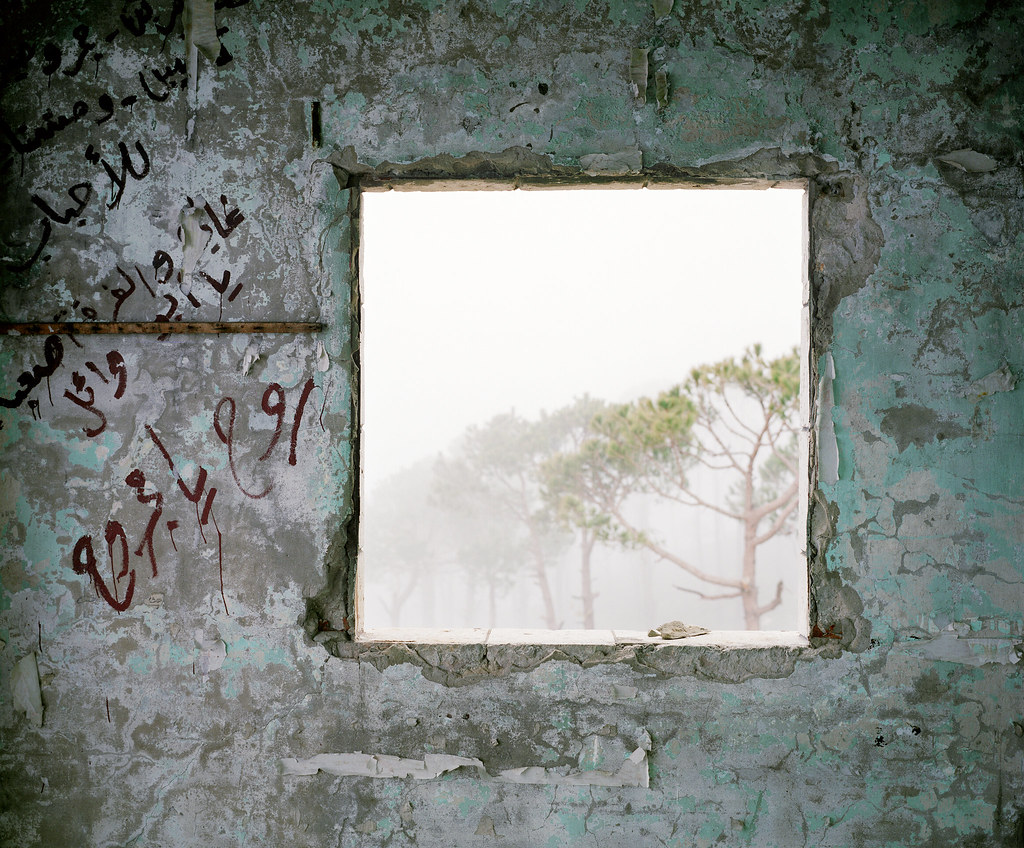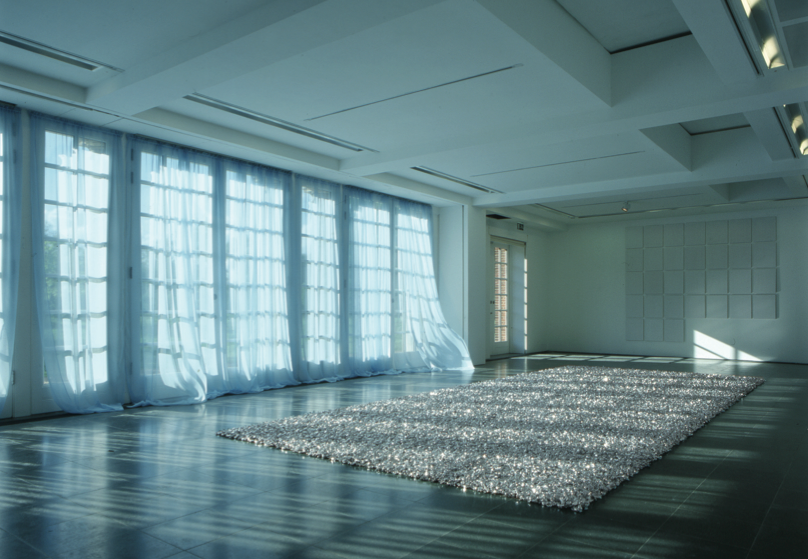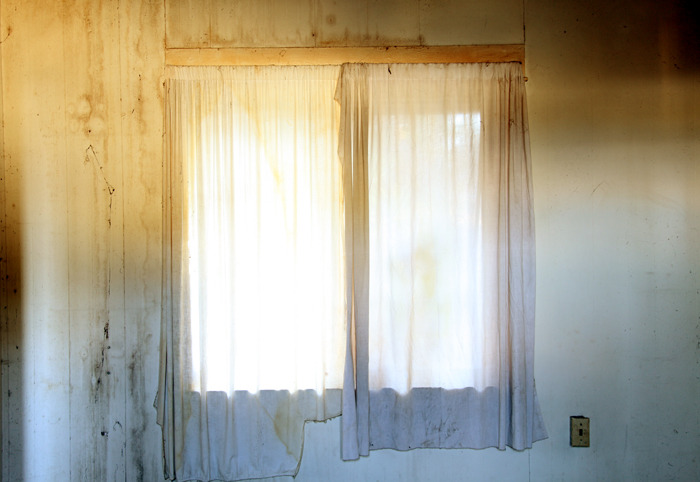12.31.2012
12.30.2012
reveries and memories at the open window
Mrs. Dalloway said she would buy the flowers herself.
For Lucy had her work cut out for her. The doors would be taken
off their hinges; Rumpelmayer's men were coming. And then, thought
Clarissa Dalloway, what a morning—fresh as if issued to children on
a beach.
What a lark! What a plunge! For so it had always seemed to her,
when, with a little squeak of the hinges, which she could hear now,
she had burst open the French windows and plunged at Bourton into
the open air. How fresh, how calm, stiller than this of course, the
air was in the early morning; like the flap of a wave; the kiss of
a wave; chill and sharp and yet (for a girl of eighteen as she then
was) solemn, feeling as she did, standing there at the open window,
that something awful was about to happen; looking at the flowers,
at the trees with the smoke winding off them and the rooks rising,
falling; standing and looking until Peter Walsh said, "Musing among
the vegetables?"—was that it?—"I prefer men to cauliflowers"—was
that it? He must have said it at breakfast one morning when she had
gone out on to the terrace—Peter Walsh. He would be back from India
one of these days, June or July, she forgot which, for his letters
were awfully dull; it was his sayings one remembered; his eyes, his
pocket-knife, his smile, his grumpiness and, when millions of
things had utterly vanished—how strange it was!—a few sayings like
this about cabbages.
Virginia Woolf, Mrs. Dalloway
.
12.29.2012
two variations in red
Labels:
curtains,
figure,
Masha Demianova,
photography,
window
12.28.2012
12.27.2012
from In Time's Rift
This was read:
"Infinity, come in!"
How would it be possible,
since the finite piles up?
I look at a window,
square of sky.
You, dear, are still
my dwelling.
Ernst Meister, In Time's Rift, pg. 71,
tr. Graham Foust & Samuel Frederick
Gelesen dies:
“Unendlichkeit, tritt ein!”
Wie wär es möglich,
da sich das Endliche türmt?
Ich schau auf ein Fenster,
Himmelsviereck.
Noch bist du, Liebes,
meine Wohnung.
"Infinity, come in!"
How would it be possible,
since the finite piles up?
I look at a window,
square of sky.
You, dear, are still
my dwelling.
Ernst Meister, In Time's Rift, pg. 71,
tr. Graham Foust & Samuel Frederick
Gelesen dies:
“Unendlichkeit, tritt ein!”
Wie wär es möglich,
da sich das Endliche türmt?
Ich schau auf ein Fenster,
Himmelsviereck.
Noch bist du, Liebes,
meine Wohnung.
.
.
winter painting
12.25.2012
...
All was still,
except for the curtains
which breathe with the light.
Michael Tweed, from the on-going Conversations with the Light
.
12.21.2012
stillness and a glimpse of white
Rullakartiini 2006
Talvipuutarha 2006
Unlike his master Penti Kaskipuro, Riippa employs colour. However, what they share is the ambition for timelessness and the fondness for still lifes. Riippa seldom uses an object for a model; rather than aiming for detailed resemblance, he conveys the character of things.
Riippa Esa (Finnish, b.1947)
.
12.19.2012
from ice windows to ice paintings
The artist Susan Kruse presenting her amazing works with the elements (rain, snow etc.):
"This picture shows the original inspiration for the ice pictures - the desire to capture somehow the beautiful frost patterns made on my shed-cum-studio windows

This is an image of the ice crystals taken inside the shed.

A couple of days ago I painted a blue square on the window,

And this is an ice painting. The crystals of ice make
patterns into the wet ink. Made outside at 6am this morning.

All the paintings made this morning.

this is where you can find her original post, on her blog, Welcome to my Brain
.
"This picture shows the original inspiration for the ice pictures - the desire to capture somehow the beautiful frost patterns made on my shed-cum-studio windows

This is an image of the ice crystals taken inside the shed.

A couple of days ago I painted a blue square on the window,
you can see the ice crystals growing over it now.

And this is an ice painting. The crystals of ice make
patterns into the wet ink. Made outside at 6am this morning.

All the paintings made this morning.

this is where you can find her original post, on her blog, Welcome to my Brain
.
12.18.2012
12.17.2012
12.16.2012
12.15.2012
vertigo
12.14.2012
12.12.2012
blue window
A pretty word, window.
Window: the wingbeat of the yellow butterfly.
Two carelessly painted wooden shutters open out,
clumsy blue window.
I jump in and out of you, ride you like a horse,
my foot dragging the ground.
Window on the open world, from where I saw
Anita, expecting, get married, Pedro Cisterna’s
mother urinating in the rain, from where I saw
my love arrive on a bicycle and say to my father:
I have only the best intentions regarding your daughter.
O wooden-latched window, child’s play for thieves,
peephole on my soul,
I look into my heart.
Window, by Adélia Prado
.
12.10.2012
behind the curtain
12.06.2012
12.01.2012
11.27.2012
green jade chimes by the window
I hung green jade chimes by the window,
with a screen of peacock feathers beneath.
Whenever the wind blows they flutter,
and beguile me with their tinkling sound.
In the nights it penetrates my sleep,
like the sound of distant temple bells.
anonymous, Korean sijo
tr. by Richard Rutt
.
with a screen of peacock feathers beneath.
Whenever the wind blows they flutter,
and beguile me with their tinkling sound.
In the nights it penetrates my sleep,
like the sound of distant temple bells.
anonymous, Korean sijo
tr. by Richard Rutt
.
11.23.2012
her breath
rustling branches
the grass swaying silently
her breath on the glass
haiku: Michael Tweed
photo: Ralph Eugene Meatyard
.,
.
11.22.2012
i have lost you in the light
11.18.2012
which poured from every window
J. M. Whistler, "Nocturne in Gray and Gold," 1876
Sometimes she wanted to push herself through the deluge
Of light which poured from every window, pushed away dark
If only for a while, and glint in through the space between all things
So she might pour herself, dilute herself, with the liquid of these other lives.
(Michael T. Stowers kindly offered these lines in reply to the previous post)
.
11.17.2012
past lighted windows
What with the silence, and the possibility of walking out, at any
moment over long wonderfully coloured roads to cliffs with the sea
beneath, and coming back past lighted windows to one’s tea and fire and
book - and then one has thoughts and a conception of the world and
moments like a dragon fly in air - with all this I am kept very lively
in my head.
Virginia Woolf, from a letter to Clive Bell dated 26 December 1909.
.
11.11.2012
shining curtains
11.10.2012
10.31.2012
the window shut...
I put myself inside, and I close the window.
They bring me the lamp and they say good night,
And my peaceful voice says good night.
If only my life were always this:
A day full of sun, or soft with rain,
Or stormy to end the world,
A pleasant evening with groups of passing people
I can watch curiously from my window,
A last friendly look at the quietness of the trees,
And then after, the window shut, the lamp still burning,
Without reading anything, or thinking about anything, or even sleeping,
To feel life running through me like a river along its bed,
And outside a great silence like a god who is sleeping.
Fernando Pessoa/ Alberto Caeiro
They bring me the lamp and they say good night,
And my peaceful voice says good night.
If only my life were always this:
A day full of sun, or soft with rain,
Or stormy to end the world,
A pleasant evening with groups of passing people
I can watch curiously from my window,
A last friendly look at the quietness of the trees,
And then after, the window shut, the lamp still burning,
Without reading anything, or thinking about anything, or even sleeping,
To feel life running through me like a river along its bed,
And outside a great silence like a god who is sleeping.
Fernando Pessoa/ Alberto Caeiro
10.24.2012
sonnet LXV
Matilde, where are you? Down here I noticed,
under my necktie and just above my heart,
a certain pang of grief between the ribs,
you were gone that quickly.
I needed the light of your energy,
I looked around, devouring hope.
I watched the void without you that is like a house,
nothing left but tragic windows.
Out of sheer taciturnity the ceiling listens
to the fall of the ancient leafless rain,
to feathers, to whatever the night imprisoned:
so I wait for you like a lonely house
till you will see me again and live in me.
Till then my windows ache.
Pablo Neruda, Sonnet LXV (via SKEELYS)
image: Todd Hido
.
Labels:
Pablo Neruda,
photography,
poetry,
Todd Hido,
window
10.14.2012
10.12.2012
10.06.2012
8.31.2012
8.17.2012
the sound of a window opening
You hear
The sound of a window opening
In the distance is the sea
- The glistening boat
Lies in the dunes
In the distance is the deep blue sea
That whisper you hear is sound of the sea
The boat lies in the dunes
In the distance stretches the deep blue sea
打開窗子的聲音
- 打開窗子的聲音
你聽見了
遠處是海
伏在沙丘上
遠處是 藍藍的海
你聽
最小的聲音 是海
船伏在沙丘上
遠處是藍藍的一片
.
.
8.13.2012
a little light
Labels:
curtains,
Nicholas Nixon,
photography,
shadow,
window
7.17.2012
7.05.2012
de ma fenêtre
7.02.2012
moving and still both, like a white curtain blowing
He is here, come down to look for you.
It is the song that calls you back,
a song of joy and suffering
equally: a promise:
that things will be different up there
than they were last time.
You would rather have gone on feeling nothing,
emptiness and silence; the stagnant peace
of the deepest sea, which is easier
than the noise and flesh of the surface.
You are used to these blanched dim corridors,
you are used to the king
who passes you without speaking.
The other one is different
and you almost remember him.
He says he is singing to you
because he loves you,
not as you are now,
so chilled and minimal: moving and still
both, like a white curtain blowing
in the draft from a half-opened window
beside a chair on which nobody sits.
from
Eurydice, by Margaret Atwood
It is the song that calls you back,
a song of joy and suffering
equally: a promise:
that things will be different up there
than they were last time.
You would rather have gone on feeling nothing,
emptiness and silence; the stagnant peace
of the deepest sea, which is easier
than the noise and flesh of the surface.
You are used to these blanched dim corridors,
you are used to the king
who passes you without speaking.
The other one is different
and you almost remember him.
He says he is singing to you
because he loves you,
not as you are now,
so chilled and minimal: moving and still
both, like a white curtain blowing
in the draft from a half-opened window
beside a chair on which nobody sits.
from
Eurydice, by Margaret Atwood
6.23.2012
child in the window
In one of these rooms, was a window looking into the street, where the child sat, many and many a long evening, and often far into the night, alone and thoughtful. None are so anxious as those who watch and wait; at these times, mournful fancies came flocking on her mind, in crowds.
She would take her station here, at dusk, and watch the people as they passed up and down the street, or appeared at the windows of the opposite houses; wondering whether those rooms were as lonesome as that in which she sat, and whether those people felt it company to see her sitting there, as she did only to see them look out and draw in their heads again. There was a crooked stack of chimneys on one of the roofs, in which, by often looking at them, she had fancied ugly faces that were frowning over at her and trying to peer into the room; and she felt glad when it grew too dark to make them out, though she was sorry too, when the man came to light the lamps in the street--for it made it late, and very dull inside. Then, she would draw in her head to look round the room and see that everything was in its place and hadn't moved.
She would take her station here, at dusk, and watch the people as they passed up and down the street, or appeared at the windows of the opposite houses; wondering whether those rooms were as lonesome as that in which she sat, and whether those people felt it company to see her sitting there, as she did only to see them look out and draw in their heads again. There was a crooked stack of chimneys on one of the roofs, in which, by often looking at them, she had fancied ugly faces that were frowning over at her and trying to peer into the room; and she felt glad when it grew too dark to make them out, though she was sorry too, when the man came to light the lamps in the street--for it made it late, and very dull inside. Then, she would draw in her head to look round the room and see that everything was in its place and hadn't moved.
Charles Dickens , The Old Curiosity Shop
.
6.22.2012
ever shifting patterns of light and shadow
As we dialogued on a sunny early October day, the tall cedars outside were gently waving in the breeze. Every branch was in motion, and the trees were swaying back and forth, glistening in the bright sunlight as they did so, creating ever shifting patterns of light and shadow. Dr. Sen pointed to the unceasing motion visible through the room's large windows, saying that like the breeze and the branches, the Way of Tea “follows nature's path: it is a flowing which is not obvious." It is called furyu. Fu means “wind,” and ryu means “to flow”: “this suggests that our spirit should flow through life like the wind that flows through all of nature”.
from Robert Edgar Carter, The Japanese Arts and Self-Cultivation
.
6.21.2012
as if nothing
Écrire le jour, ses odeurs, ses lueurs, ses rumeurs. Ce qui s’approche, s’éloigne. Comment parler ce pli, cet instant où tout bascule? Ce fil où l’on attend, en équilibre? Avec le corps devenu écoute, regard. Chaque poème est comme une fenêtre. Un petit rectangle de mots qui donne sur ce qu’on ne sait pas. Sur la lumière et sur les ombres. Sur les visages et sur les gestes. Sur les paroles, sur les cris. Sur ce tissu du monde où, parfois, quand vient le silence, on entend que quelqu’un respire.
To transcribe the day, its odours, its glimmers, its murmurs. What comes near, what distances itself. How give voice to this fold, this instant in which everything vacillates? To this thread on which, poised, one waits? With the body become hearing, become gaze. Each poem is like a window. A small rectangle of words opening upon one knows not what. Upon light and shadows. Upon faces and gestures. Upon words, upon cries. Upon this fabric of the world where, sometimes, when silence comes, one hears someone breathing. (tr. Michael Tweed)
Jacques Ancet
.
.
6.18.2012
figur am fenster
Subscribe to:
Posts (Atom)












































